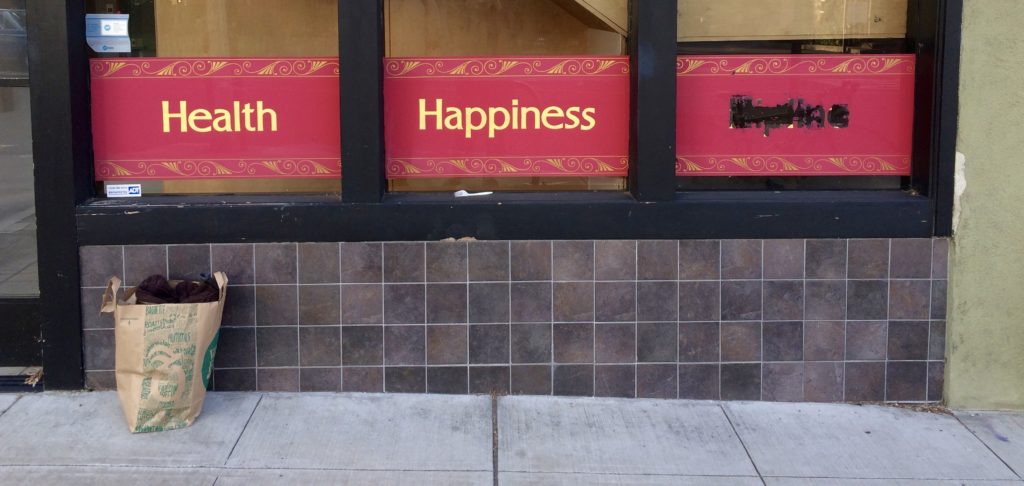
Photo taken in Oakland, California.
I was nervous in all the cliché ways — sweaty palms, rubbing them on my thighs, slightly flushed and slightly sweaty. Everyone said the procedure wouldn’t hurt. But I didn’t know of any person who had gotten it reversed. So this was permanent. It wouldn’t help to dream of regaining ownership.
The recruiter gave me a kind glance over her desk. “Are you ready, dear?” She seemed configured to look grandmotherly, complete with the faint cookie smell. I felt a little suspicious, wondering if she was a bioengineered multi-stack human, placed here to comfort me into signing myself over. Or maybe her personality was just a happy coincidence for the corporation.
I needed the money. That’s how these things always happen. People used to join the United States Army because the education and income were worth risking your life. I heard about that from old Boomers on street corners. When I was a kid, they still hung around.
I never liked their greyness, the frozen-in-time feel of them. Boomers rocked back and forth on their haunches, shooting the shit with each other, and you couldn’t help but listen while waiting for the crosswalk. My parents’ parents, the generation birthed by the “Greatest Generation”; the generation that caused all of this anyway. Fuck ’em.
The recruiter pushed a tablet and stylus toward me. She nodded with a smile, just like a benevolent automaton would. I swiped through the forms slowly, trying to read everything but feeling my eyes glance off the denser patches of legalese. What could they say in these documents that would deter me, anyway?
I needed the money.
The press called them “oblivion jobs” — liberal columnists thought they were evil and conservative columnists called them an honest day’s work. Snapchat blew up with the debates for a while. Then other liberals jumped in and pointed out that this new solution was better than fully conscious drudgery.
Besides, the second faction of leftists argued, it was condescending to confiscate options from the poor. Let them choose. We chose, in droves, because it paid decently. Finally, something that paid decently! I was a holdout, actually. Paranoia and an irregular news habit kept me away from the recruiting offices until almost everyone else I knew had signed up.
The value proposition was straightforward: Sell your time and labor, like any job. But you don’t have to be awake while it’s happening. Rent out your body and accept long stretches of blankness. Would you rather be aware of the monotonous physical labor — hollowing out arcology units, adjusting every terminal for the dirt it was lodged in? Or would you rather wake up ten hours later, never having processed how you spent the time?
The commercials said it would be like going straight from breakfast to watching TV with a beer in hand. And you’d stay in shape, hooray!
The hardware-wetware combo behind this was complex and poorly understood, controversial among engineers as well as pundits. Roboticists were exasperated at first, not used to being second best, but eventually they resigned themselves to the new status quo. Machines were physically more capable, but they couldn’t match the sensory intuition of oblivion workers.
Everyone who told me the procedure wouldn’t hurt was right. And soon my employment situation felt familiar, of course. It was only strange for a couple of weeks to “wake up” with an aching back, nearly ready to go back to bed again.






